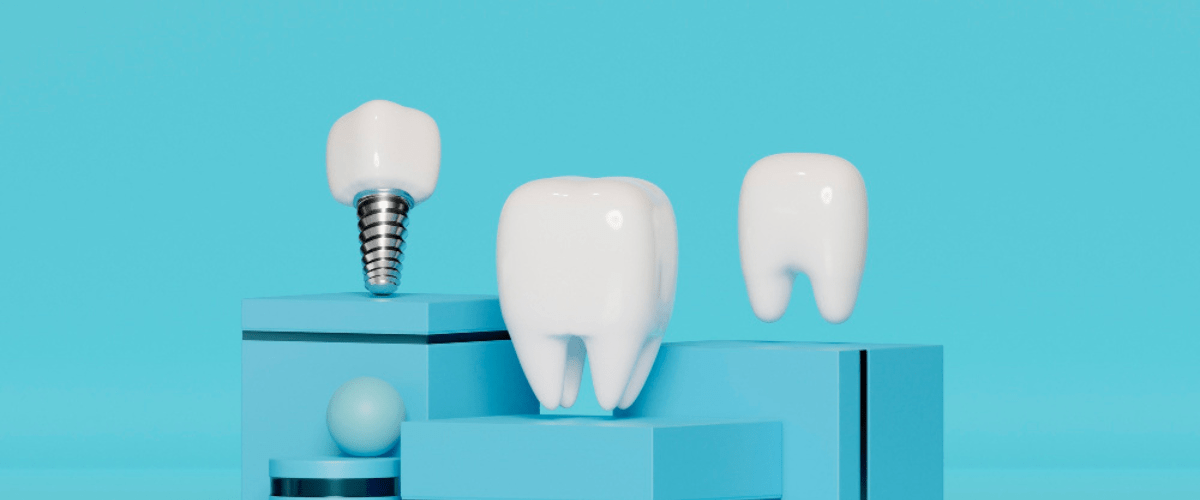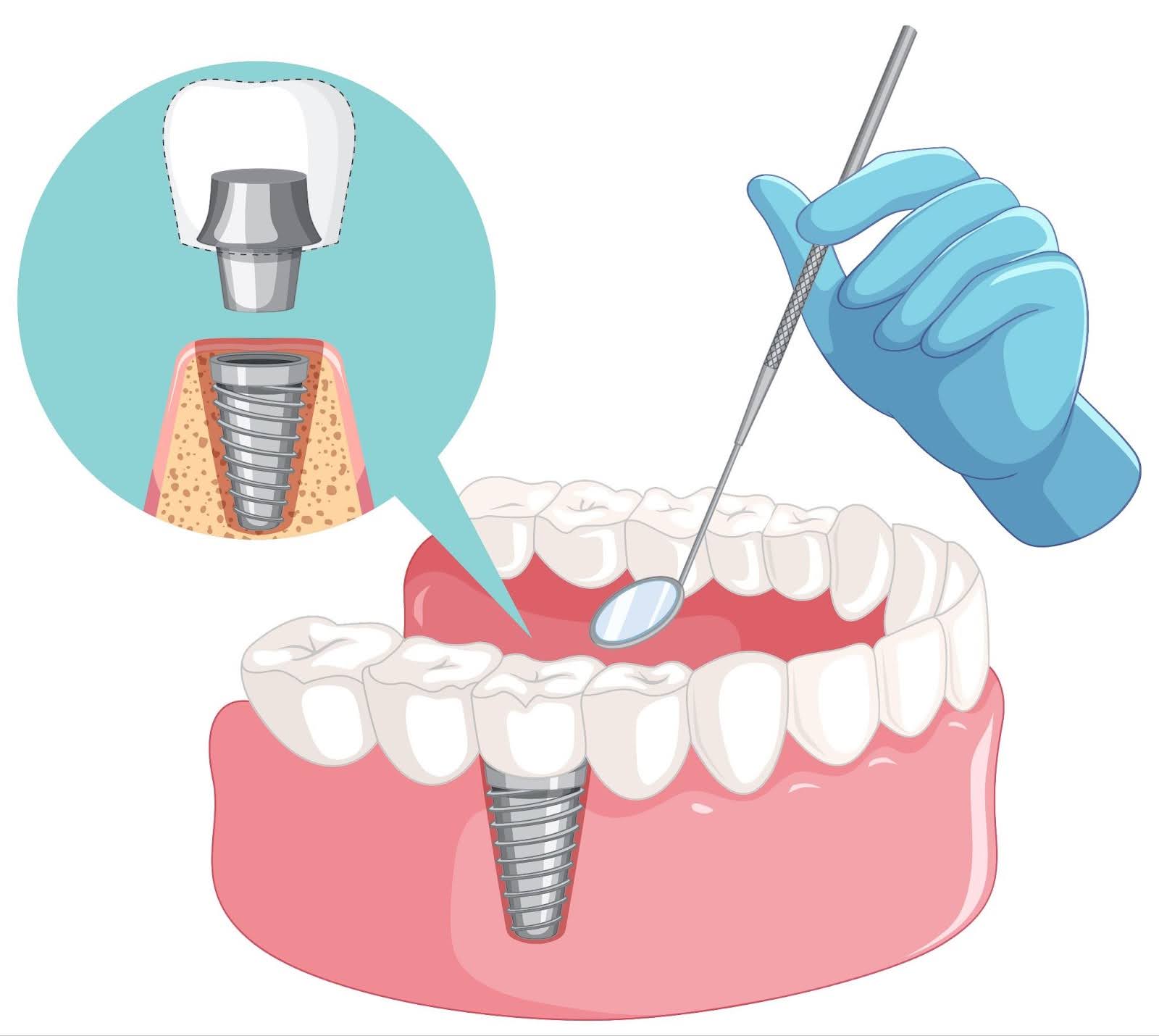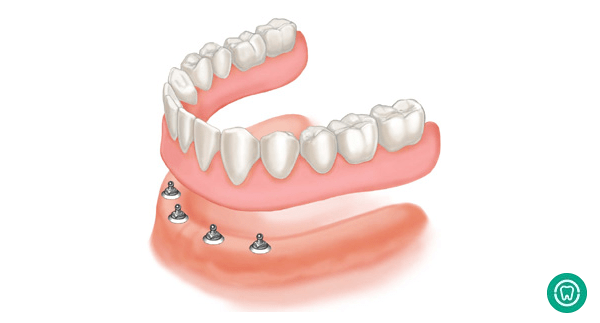
19 Jul Dental Implants: A Long-Term Solution for Missing Teeth and A Confident Smile
Dental Implants: A Long-Term Solution for Missing Teeth and A Confident Smile
By Island Hospital | July 19, 2024 12:00:00 PM
Medical Reviewer: Dr Yew Ching Ching, Oral and Maxillofacial Surgeon
Missing teeth are a common issue affecting millions of people. While some may view it as a purely cosmetic concern, the impact goes far beyond aesthetics.
For one, it can significantly affect your ability to chew effectively, leading to digestive problems.
One of the many ways to solve this problem is through dental implants! This state-of-the-art solution helps replace missing teeth, by functioning as artificial tooth roots, surgically placed within the jawbone to support a permanent dental restoration.
This article will answer your queries on dental implants, while exploring the benefits they offer compared to traditional methods, procedures, and its costs tailored to the Malaysian context.
What Are Dental Implants?
Dental implants are biocompatible posts, fabricated from titanium or ceramic, that are surgically placed within the jawbone to mimic the function of natural tooth roots.
These implants serve as a stable foundation for the attachment of permanent or removable prosthetic teeth, meticulously crafted to achieve optimal aesthetic integration with your existing dentition.
With a lifespan that can range from 10 to 30 years, dental implants offer a remarkable chance of lasting a lifetime, especially for those who receive them earlier in life.
When compared to other tooth replacement options, dental implants stand out as the clear leader in terms of long-term durability.
Types of Dental Implants
While dental implants offer a long-lasting solution for missing teeth, there’s not a one-size-fits-all approach.
The type of implant recommended by your dentist will depend on your specific needs and jawbone anatomy.
There are two main types of dental implants, depending on how they are placed in the jawbone:
1. Endosteal implants

Photo by Freepik
Endosteal implants are the most common type of dental implants. They are shaped like a small screw, cylinder, or blade and are surgically placed into the jawbone.
These implants integrate with the jawbone over time and provide a strong foundation for a single tooth restoration, a bridge, or even a full denture.
2. Subperiosteal implants

Photo by DENTIDESK
Subperiosteal implants are less common than endosteal implants and may not be as durable. They are placed on or above the jawbone, rather than being embedded within it.
This type of implant is typically used for patients who have limited jawbone density and may not be a good candidate for endosteal implants.
Want to expand your knowledge on good oral hygiene? This article on teeth scaling has all the details you need!
Benefits and Risks of Dental Implants
Dental implants offer a clear advantage over dentures in several key areas.
Unlike dentures, which can slip and cause chewing difficulties, implants function like natural teeth. Here are some advantages of dental implants:
- Eat with confidence
Implants function like natural teeth, allowing you to enjoy any food comfortably.
- Good durability
Implants last a lifetime with proper care, unlike dentures that need replacements.
- Improved Oral Hygiene
Flossing is easier with implants, unlike dentures which may require modifying healthy teeth.
- Long-Term Comfort
Implants are permanent, eliminating irritation and infection risks from loose dentures. They also require less maintenance.
- Natural-Looking Smile
Enhance your smile’s aesthetics and boost self-esteem with natural-looking crowns.
- Protects Your Jawbone
Implants prevent bone loss by mimicking natural tooth roots and stimulating the jawbone – keeping it strong and healthy.This helps preserve jaw tissue as the lack of anchorage will weaken the jawbone over time and can even change facial structure.
While dental implants are a successful and long-lasting solution for missing teeth, there are also some potential risks and complications to consider:
- Infection
As with any surgery, there’s a risk of infection at the implant site. Proper post-operative care is crucial to minimise this risk.
- Nerve damage
During implant placement surgery, there’s a small chance of injuring nerves in the jaw, which can cause numbness, tingling, or pain.
- Pain and swelling
Discomfort and swelling are common after implant surgery and typically subside within a few days.
- Sinus problems
For upper jaw implants, there’s a slight risk of sinus issues if the implant protrudes into the sinus cavity.
Candidacy for Dental Implants
While dental implants offer a multitude of advantages for replacing missing teeth, candidacy is determined by individual factors to ensure optimal outcomes and long-term success.
Ideal candidates for dental implants include those who have:
- A mature jawbone
Full jaw development is necessary for optimal implant placement.
- A desire for an alternative to dentures
Difficulty wearing dentures is a common reason to consider implants.
- Healthy gums and oral tissues
Healthy gums are essential for successful implant surgery to prevent any potential risks or complications from arising.
- Missing teeth
Whether you’re missing a single tooth or several, implants offer a permanent solution.
- No major health concerns
Certain medical conditions can impact bone healing.
- No smoking habits
Smoking can negatively impact healing and implant success.
- Sufficient bone density
Adequate bone volume is crucial for implant stability. Bone grafting procedures can be performed if needed.
- Wish to improve speech clarity
Implants can significantly enhance speech compared to dentures.
Dental Implants Procedure
The placement of dental implants is a meticulous process tailored to the specific needs of each patient according to the implant type and individual jawbone anatomy.
This procedure may require multiple stages, differing on individuals but the following is a general dental implant procedure.
1. Preparation and What To Expect
The planning phase for dental implants may require collaboration with a team of specialists.
This could include an oral and maxillofacial surgeon, specialising in surgeries of the mouth, jaw, and face; a periodontist, focusing on the structures supporting teeth (gums and bone); a prosthodontist, who designs and fits artificial teeth; and on occasion, an ear, nose, and throat (ENT) specialist.
As dental implants involve surgery, a thorough evaluation is crucial for optimal preparation. This comprehensive assessment typically includes:
- Detailed dental exam
This exam involves a close inspection of your teeth and gums. X-rays and 3D imaging may be used to assess jawbone anatomy and tooth positioning.Additionally, models of your teeth and jaw might be created for treatment planning purposes.
- Medical history review
Disclosing your complete medical history, including any existing conditions and medications (prescription, over-the-counter, and supplements), is essential.Certain medical conditions or implants may need preventative antibiotics before surgery to minimise infection risk.
- Personalised Treatment Plan
A customised plan will be formulated based on your specific needs.Factors like the number of missing teeth, jawbone health, and remaining teeth are all considered when crafting this roadmap for your implant journey.
- Removal of tooth (if needed)
Your damaged tooth will be removed by your dentist before the procedure.
- Bone grafting (depends on individuals)
For some patients, jawbone density might require additional support before implant placement as a sturdy base is crucial for the implant’s success.Bone grafting provides a solution by creating a stronger foundation for the implant.There are two main types of bone graft materials:- Natural bone grafts
These can be harvested from another area of your body. - Synthetic bone grafts
These are man-made materials designed to stimulate new bone growth.
- Natural bone grafts
For your comfort, various anaesthesia options like local numbing, sedation, or general anaesthesia are available.
It is best to discuss the choice with your dentist beforehand as pre-operative instructions on eating and drinking will depend on the anaesthesia type.
If sedation or general anaesthesia is used, it is highly recommended that you arrange for someone to drive you home and plan to rest for the day.
2. Dental Implant
Dental implant surgery is an outpatient procedure, typically broken down into stages with healing intervals between each.
This extended timeline, sometimes lasting months, is crucial for your jawbone to heal and integrate seamlessly with the implant.
Only after this osseointegration (bone fusion) is complete can the dentist securely attach your new artificial tooth.
Stage 1: Implant Placement
- Your surgeon will create a small opening in your gum to access the jawbone.
- Tiny drill holes are then made to accommodate the implant post, which is then inserted securely.
- The gum tissue is stitched closed and a temporary, removable denture might be provided to conceal the implant if visible while speaking or smiling.
Stage 2: Healing and Bone Fusion
- Over several months, your jawbone heals and integrates with the implant surface, creating a strong foundation for the artificial tooth.
Stage 3: Abutment Placement
- The abutment, a connector piece for the artificial tooth, might be placed during the initial surgery or as a separate procedure depending on the situation.
- It acts as a bridge between the implant and the replacement tooth. Visibility of the abutment when talking or smiling can influence the decision on combining this step.
Stage 4: Gum Healing
- After abutment placement, your gums typically require around four weeks to heal before the final stage.
Stage 5: Artificial Tooth Placement
- You can choose between removable or fixed artificial teeth.Removable options resemble dentures but snap onto the abutment frame. Fixed teeth are permanently secured to the abutment using screws or cement.Your dentist might even be able to attach multiple teeth to a single implant and abutment if they are bridged together.
3. Aftercare and Recovery
While the number of surgery stages may vary, some common post-operative discomforts can be expected, similar to any dental surgery:
- Bruising
- Gum and facial swelling
- Minor bleeding
- Pain
Following dental implant surgery, your dentist or surgeon may prescribe pain medication and antibiotics.
They might recommend a soft food diet for a while to allow your gums to heal properly after surgery.
Dental implants require several months for the jawbone to fully heal and integrate with the implant.
Regular follow-up appointments with your dentist and surgeon are essential to monitor your healing progress and ensure the long-term success of the implant.
Just like your natural teeth, dental implants require consistent care for optimal oral health. This includes brushing your teeth regularly, flossing daily, and scheduling regular dental checkups.
Unsure if dental implants are your perfect smile solution? Check out this exclusive package for a comprehensive oral health screening to assess your candidacy for implants.
Cost of Dental Implants in Malaysia
In Malaysia, the cost of dental implants can vary depending on several factors, but here’s a general breakdown:
- Additional procedures
Bone grafting or other preparatory procedures might be needed in some cases, adding to the total cost.
- Location of the implant
Implants placed in the front of the mouth might be slightly more expensive due to aesthetic considerations.
- Number of implants needed
The number of implants required to replace missing teeth will impact the overall cost.
- Type of implant
Different implant brands and materials can have varying costs.
- Surgeon’s experience and expertise
The experience and qualifications of your dentist or surgeon can affect the cost.
Depending on the dental clinic, the average cost of dental implants may range from RM4000 to RM12000 per tooth.
Restore Your Confidence with Natural-Looking Dental Implants!
Dental implants offer a transformative solution for replacing missing teeth and enhancing the aesthetics of your smile.
Unlike traditional options like dentures, they provide a permanent, natural-looking, and highly functional solution.
At Island Hospital, our qualified dentists can provide an individualised assessment and guide you towards achieving a smile that empowers confidence and reflects your unique personality.
Schedule a consultation with us today to explore the possibilities for a transformed smile.
Feel free to contact us should any queries arise. Our team is always available to address your questions and provide expert guidance throughout the process.
FAQ
1. How many teeth do you need for dental implants?
In some cases, strategically placed dental implants can tackle the challenge of replacing two missing teeth next to each other.
After successful integration with your jawbone, your dentist will secure a two-part restoration on top of the implant.
This restoration will consist of a crown for one tooth and a pontic (an artificial tooth) attached to the crown, effectively filling the gap of the second missing tooth.
2. Can you get implants on the same extraction day?
The good news is that technology has advanced to allow for same-day tooth extraction and implant placement!
This innovative approach offers numerous benefits for patients compared to traditional procedures.
3. Are dental implants painful?
As the dental implant procedure is performed under anaesthesia to ensure minimal discomfort during your surgery, you might only experience mild pain once the numbness wears off.
That being said, the benefits of long-lasting implants often outweighs this temporary inconvenience!
4. How often should I visit my dentist if I have dental implants?
Just like natural teeth, dental implants require consistent care to ensure their longevity and optimal oral health. Most patients with dental implants can follow a schedule of bi-annual cleanings and checkups, typically every six months.
5. How successful are dental implants?
Dental implants boast impressive success rates, with studies showing a 90%-95% success rate for patients with good overall health and consistent oral hygiene practices.
This translates to a high likelihood of your implants functioning well and lasting for many years to come.






